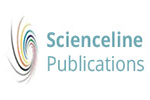(2021) Reviewing Effective Factors of Alimentary Deficiency in Animals Reproductive Functions. World's Veterinary Journal. pp. 157-169. ISSN 23224568 (ISSN)
|
Text
WVJ 11(2) 157-169 , June 25, 2021.pdf - Published Version Download (610kB) |
Abstract
Animal reproduction is one of the main factors limiting the efficiency of livestock production. Its optimal level is possibly achieved when certain conditions are created for animals. As reproduction is a complex reflex process depending on neuroendocrine regulatory mechanisms, the character and strength of stimuli, which, in turn, is due to a number of factors. Under normal conditions, the body of animals is affected by many different factors, which are appropriately transformed and specified by positive or negative reactions. Inhibitory factors include air pool, saturated with harmful substances and gases, ionizing radiation, poor water quality along with altered redox properties, hypokinesia combined with poor unbalanced feeding, systematic chronic stress, presence of toxic substances in feed, and the deficiency of vitamins and other bioantioxidants in feed or their excessive spending. Of the wide range of genetic and paratypic factors of negative impacts on reproductive capacity, the most common one is alimentary, which causes impaired reproductive function due to deficiencies in the rules, regulations, and feeding regime of animals. In particular, the alimentary can be associated with both general malnutrition (starvation) and overfeeding (obesity). However, the alimentary form of infertility mostly occurs due to low-quality diets when the diet lacks vital components (mainly vitamins, macro-, and micronutrients) or the quantitative ratios of the ingredients are violated. This is possible even if the total nutritional value of the diet meets the established requirements for the physiological needs of the body. Vitamins, micro-, and macronutrients are ecologically deficient factors of disturbance of animal reproductive function, the influence of which is observed on all processes of reproduction, from fertilization to the postpartum period and the preservation of young animals. The pathogenesis of their insufficiency is associated with the violation of steroido-, gameto-, and embryogenesis and the emergence of ante-, intra-, neo- and postnatal pathologies, respectively. Therefore, treatments and prevention measures should be aimed at providing animals with biologically complete balanced feeding and replenishment of the body with vitamins and minerals. However, all these issues remain incompletely studied and need further research.
| Item Type: | Article |
|---|---|
| Keywords: | Alimentary deficiency, Animals, Reproductive function. |
| Subjects: | Q Science > Q Science (General) S Agriculture > SF Animal culture |
| Divisions: | World's Veterinary Journal (WVJ) |
| Page Range: | pp. 157-169 |
| Journal or Publication Title: | World's Veterinary Journal |
| Journal Index: | Scopus |
| Volume: | 11 |
| Number: | 2 |
| Publisher: | Scienceline Publication, Ltd |
| Identification Number: | https://doi.org/10.54203/scil.2021.wvj21 |
| ISSN: | 23224568 (ISSN) |
| Depositing User: | Dr. Alireza Sadeghi |
| URI: | http://eprints.science-line.com/id/eprint/523 |
Actions (login required)
 |
View Item |

